What is the full form of CKDCKD: Chronic Kidney DiseaseChronic kidney disease, or CKD for short, is a kind of kidney disease wherein kidney function gradually declines over a few months to many years. Initially, there are typically no signs visible, but subsequent symptoms might include disorientation, fatigue, nausea, and leg edema. Anemia, bone disease, and high blood pressure (typically linked to renin-angiotensin system activation) are complications that can be attributed to hormonal malfunction of the kidneys. Moreover, cardiovascular issues in CKD patients have significantly grown, which increases their chance of dying and being admitted to the hospital. 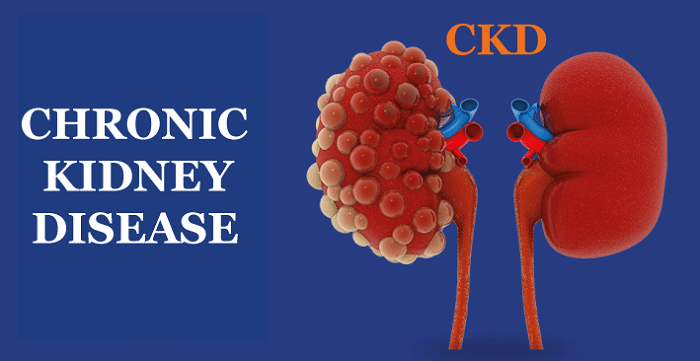
In the United States, CKD affects roughly 37 million individuals or 15% of the population. It frequently remains unnoticed and unidentified until the disease is well along. Those who are Asian American, African American, Hispanic, and Native American have a higher risk of having CKD than persons who are white. Uneven primary care for people of color may be to blame for this. Dangerous quantities of waste can quickly accumulate within the body as the renal disease progresses. By addressing the underlying cause, treatment attempts to halt or decrease the progression of renal impairment. What Exactly Is CKD?Kidney dysfunction is caused by CKD, a disorder that progresses slowly and progressively. The other kidney, however, may continue to perform normally even if one kidney ceases to function properly. Until a certain point of malfunction, a kidney may degenerate but not worsen. Nonetheless, the illness can occasionally worsen and lead to renal failure. 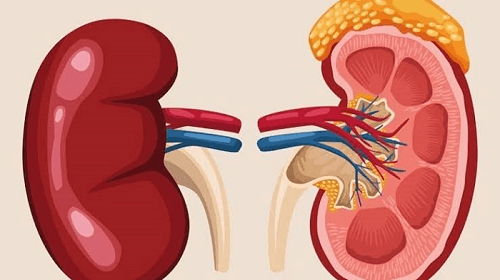
Since symptoms do not frequently appear in the initial stages of the ailment, the majority of persons with CKD are unaware that they have it. Usually, the ailment is far along when a person starts to experience any symptoms. The kidneys have already suffered permanent damage. SymptomsCKD patients might not have any symptoms or feel unwell at all. Only particular blood and urine tests can determine for sure whether or not one has CKD. In these tests, the blood creatinine level and the protein content of the urine are both measured. CKD symptoms can include:
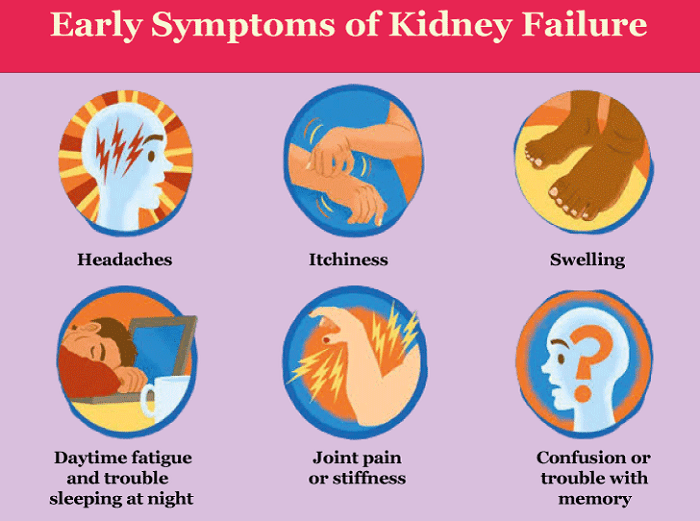
Stages Of CKDGFR is a test used by medical professionals to gauge how far along a patient's CKD is. The GFR reveals how efficiently a person's kidneys are removing waste. The GFR of an individual can change with age, sex, and body size. By measuring the amounts of creatinine in a patient's blood, a doctor can establish that person's GFR. The acid creatine, which helps muscle cells obtain energy, produces creatinine as a waste product. 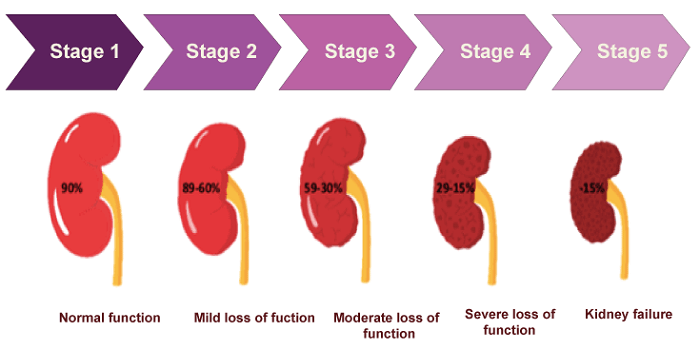
A generally consistent quantity of creatinine is removed from the blood by the kidneys when they are functioning properly. An individual may have renal issues if their blood creatinine levels change. Stage 1When someone is in stage 1 CKD, their GFR must be at least 90 ml/min per 1.73 meters squared (m2). Although there is indication of renal damage, this is normal kidney function. Urine containing protein or physical damage are a few symptoms of stage 1 CKD, which affects the kidneys. 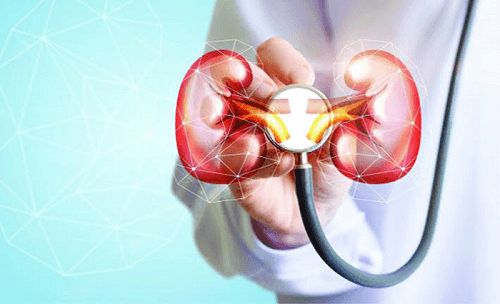
Stage 2A person's GFR ranges from 60 to 89 ml/min per 1.73 m2 if they have stage 2 CKD. An individual's kidneys are likely functioning well if their GFR is in this range. At stage 2 CKD, a person has further kidney damage, according to their GFR, however. Physical kidney injury or the presence of protein in the urine are examples of these symptoms. A doctor can prescribe drugs to assist preserve the kidneys for someone with stage 1 or stage 2 CKD. 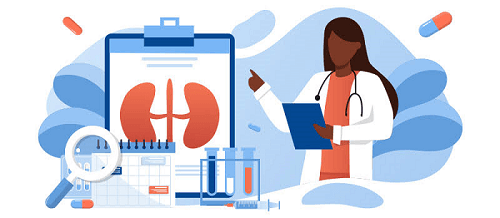
Stage 3A person's GFR is 30-59 ml/min per 1.73 m2 in stage 3 CKD. This range suggests that the kidneys of the individual are somewhat damaged. With stage 3 CKD, a person's kidneys are not functioning as efficiently as they need to. There are two subcategories of stage 3 CKD: 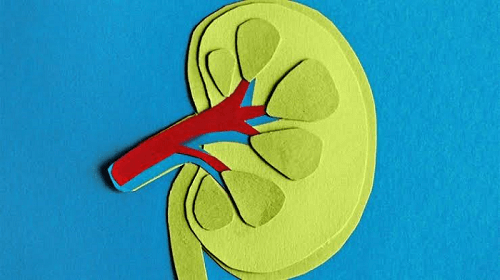
Stage 3a: A person is considered to be in Stage 3a if their GFR is between 45 and 59 ml/min per 1.73 m2. Stage 3b: A person is considered to be in Stage 3b if their GFR is between 30 and 44 ml/min per 1.73 m2. Although most persons with stage 3 CKD are symptom-free, some may experience:
When kidney disease is in stages 1-3, a person may be able to halt kidney damage by doing the following:
Speaking with a dietician about maintaining a balanced diet may also be beneficial for someone with stage 3 CKD. A person with stage 3 CKD may also discuss ACE inhibitors or angiotensin II receptor blockers with their physician (ARBs). These drugs may assist to slow the progression of CKD and can reduce blood pressure. Stage 4The GFR of an individual is 15-29 ml/min per 1.73 m2 by stage 4 CKD. An individual's kidneys have moderate to severe impairment at this point. The final stage of CKD preceding renal failure, stage 4 is a dangerous ailment. Swollen hands and feet, back discomfort, and more frequent urination are among the symptoms more frequently seen in people with stage 4 CKD. Also more common are complications like anaemia or bone disease. 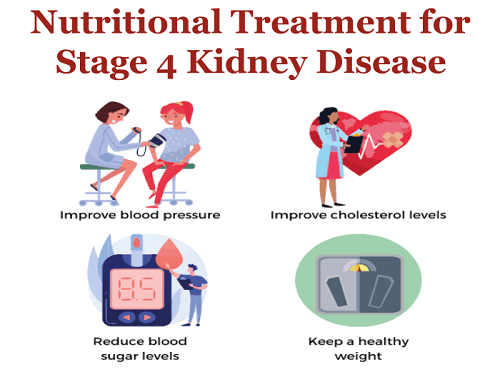
A physician could advise speaking with a nephrologist or dietician if one has stage 4 chronic kidney disease (CKD). ARBs or ACE inhibitors may also be recommended by a physician. Stage 5A GFR of 15 ml/min per 1.73 m2 or less indicates stage 5 CKD. A person's kidneys have failed or are on the verge of failing at this point. Kidney failure signs include:
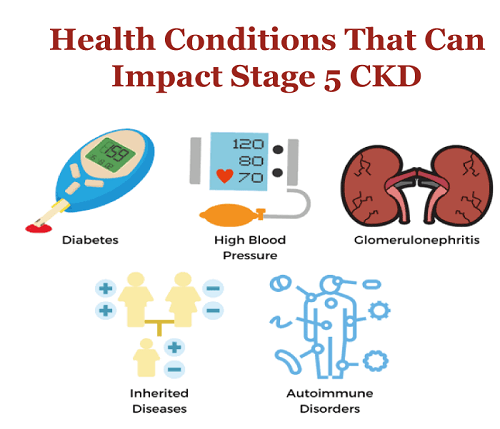
Dialysis or a kidney transplant are required for survival in cases of renal failure. When a person's kidneys are unable to filter their blood any longer, renal dialysis helps. In 2018, stage 1 CKD cases are thought to have increased by 15%, according to data. In the meantime, the number of individuals with CKD in stages 2 to 5 remained mostly stable. To avoid major harm, kidney illness must be identified early in the course of the patient's life and treated right away. Every year, diabetics should have a test to check for microalbuminuria, or minute levels of protein, in the urine. Early diabetic nephropathy, a kind of kidney disease associated with diabetes, can be found with this test. Causes Of CKDThe intricate filtration mechanism in our bodies is carried out by the kidneys. In order to do this, extra waste plus fluid materials from the blood must be removed and expelled from the body. Toxins and waste are removed from the blood by the kidneys. Nonetheless, issues can arise:
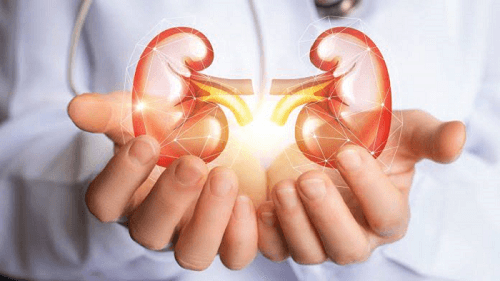
Diabetes or high blood pressure are two common causes of CKD. Uncontrolled diabetes can cause kidney damage because sugar (glucose) builds up in the blood. Meanwhile, the glomeruli may get damaged due to high blood pressure. These kidney organelles are responsible for removing waste. Some possible causes of CKD include:
Forms of TreatmentTo manage the diseases and symptoms brought on by CKD, people might have to consume a variety of medications. Depending on the phase of their CKD, a person may also need to undertake any of the below mentioned lifestyle modifications or medical procedures. i) Healthy Diet Treatment for renal failure must include a healthy diet. Limiting the quantity of protein consumed may help delay the condition's progression since eating too much protein might strain the kidneys. The precise quantity of protein that an individual needs to consume, however, will vary based on their body type, state of health, and level of physical activity. The best sources of protein as well as recommended daily amounts should be discussed with a doctor or nutritionist. 
Reducing nausea sensations via food adjustments may also be beneficial. To manage high blood pressure, one should carefully reduce their salt consumption. In addition, a person may need to limit their intake of potassium and phosphorus since these substances can be harmful for those with CKD. ii) Non-Steroid Anti-Inflammatory Medication Nonsteroidal anti-inflammatory medicines (NSAIDs), including ibuprofen, certain antibiotics, and the use of dye with a CT scan should be avoided by those with CKD. The reason for this is because the way the kidneys may metabolize certain medications could put patients at a higher risk of adverse consequences. 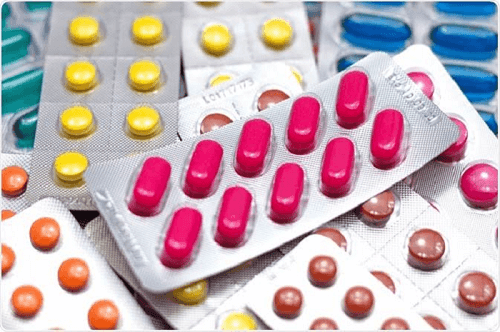
iii) Ultimate Step of Treatment End stage therapy usually starts when a person is in stage 5 and their kidneys are operating at 15% of their normal capability. It happens when a person adjusts their lifestyle, food, and medication intake but still experiences difficulty with the kidneys keeping up with the process of eliminating fluid and waste. In order to survive, a person with end-stage renal illness will require dialysis or a kidney transplant. As dialysis and kidney transplants have the potential to cause extremely significant consequences, most doctors attempt to postpone their usage as long as they can. Wrapping UpCKD is a prevalent condition that affects roughly 1 in 7 people in the US. Compared to Asian Americans, Black Americans, Hispanic Americans, and Native Americans, White people are less likely to acquire CKD. When kidney function is 15% below normal, people typically don't realize they have the disease. They already have chronic kidney disease (CKD) at this point, necessitating dialysis or a kidney transplant. The management of the main culprits, diabetes and hypertension, is crucial to prevention. Nevertheless, CKD can also be brought on by other illnesses, such as heavy metal intoxication and renal damage. Those who are worried about the illness or at risk for it should discuss testing with a doctor. Maintaining good health with nutrition and exercise can also help in preventing CKD.
Next TopicFull Forms List
|
 For Videos Join Our Youtube Channel: Join Now
For Videos Join Our Youtube Channel: Join Now
Feedback
- Send your Feedback to [email protected]
Help Others, Please Share










